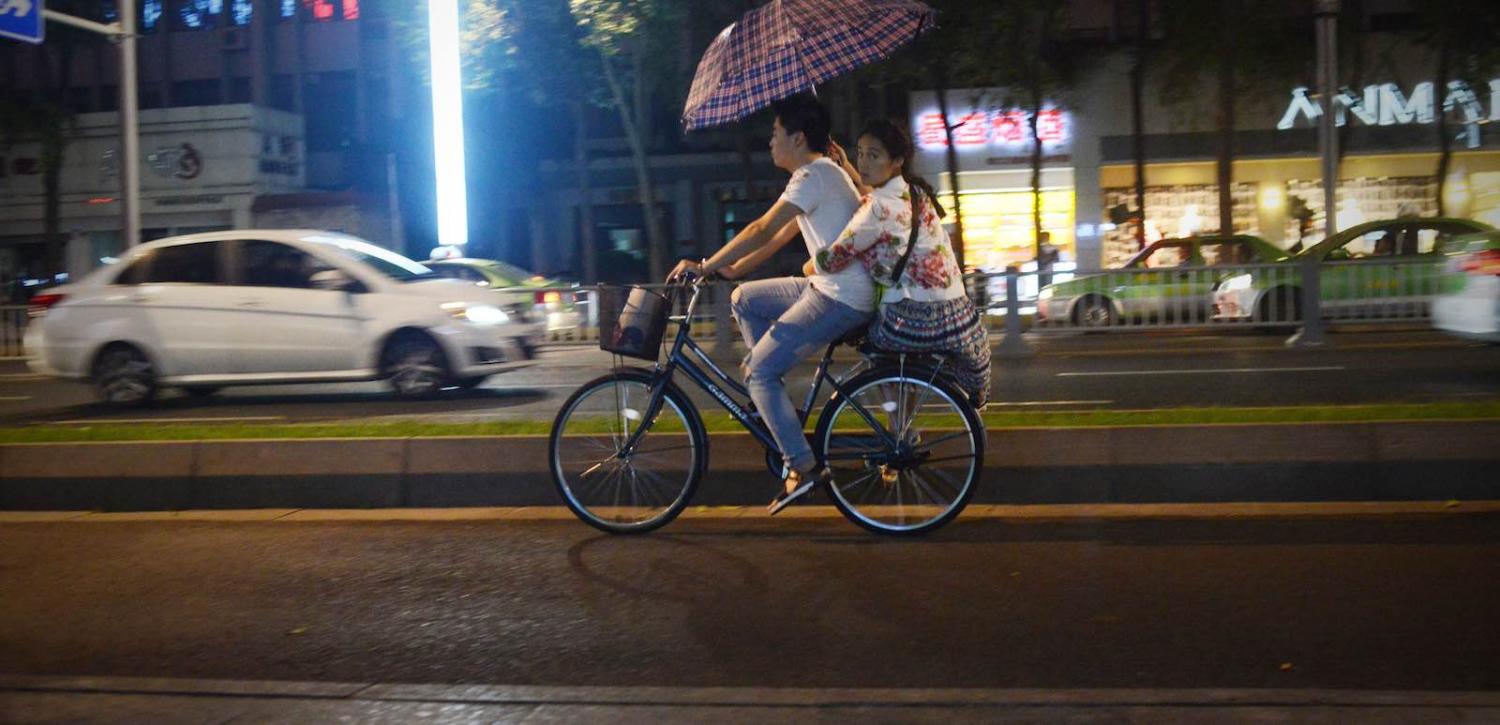The continued legitimacy of the Chinese government under President Xi Jinping, as it was with former president Hu Jintao, depends on two main pillars: improvements in people’s material wellbeing and a strong sense of national pride. The notion that the government will improve the Chinese people’s quality of life in exchange for a broad acceptance of political direction is at the core of the unwritten social contract between Chinese people and the state.
However there have been considerable challenges to this in recent years, for example, slowing growth rates and an increased demand from the population that wealth be created more sustainably and distributed more equitably.
Perhaps the most critical driver is to meet the Chinese people’s expectations that the government will improve their material well-being.
The Chinese economy has undergone enormous and rapid transformation in the shift away from production and manufacturing towards a consumption-driven model. There is a growing and not inaccurate perception within the People’s Republic of China (PRC, or China) that some are benefiting more from these adjustments than others. According to Chinese statistics, for example, income inequality remained “relatively serious” in 2017.
At the end of August this year, the government passed a number of major reforms to individual income tax laws. In sum, the major changes were around what can now be counted as tax deductible (for example, care for supporting the elderly); raising the tax free threshold; moving responsibility for income tax from business to the individual; and changing tax residency rules.
Tax in China is a highly sensitive issue, so why these changes, why now, and what might happen next?
Lu Zhizhen from the Beijing-based policy research firm China Policy explains these recent changes to personal income taxes have several complementary purposes. At the highest level, lacking a broad and efficient tax system denies Beijing some of the primary levers of a modern economy. Individual income tax makes up less than 7% of total tax revenue, which is very low compared to the average for developed countries. As countries around the world focus on taxing their nationals’ global income, these reforms are part of Beijing’s broader ongoing efforts to institutionalise and reform the tax system in a step towards making it better fit global norms.
Domestically, the government (or more accurately, Party-state, the unique governance combination of administrative government and Chinese Communist Party) upholds that the reforms will also stimulate the economy at a time of slowdown.
Yet perhaps the most critical driver is to meet the Chinese people’s expectations that the government will improve their material wellbeing.
While the Chinese tax system is in need of reform, a rational economic calculation is not the only driver for the changes. Politics also matters. Like tax reforms anywhere, these changes are part of far broader policy objectives ultimately designed to maintain support for the government. Understanding this context matters as the political purpose greatly affects how successful the measures will be, and the political and economic landscape in the immediate future.
In order to ensure the government fulfils its obligations, addressing the disparity between rich and poor is a centrepiece of Xi’s policy objectives. In response to these challenges, Xi announced in 2015 that China would become a “xiaokang society” by 2020. The idea of a “xiaokang society”, usually translated as ‘moderately prosperous for all’, goes back to Confucius. It has been used more recently as shorthand for the goal of lifting the remaining portion of the Chinese population still living in poverty into the middle class.
But very little action has been taken until recently. One reason for the delay is that an equitable tax basis would entail much fuller disclosure of incomes. This is sensitive for any society and has been enough to see reforms delayed for many years.
However, the political landscape changed last year. At the 19th Party Congress in November, Xi announced that: “the principal contradiction facing Chinese society has evolved. What we now face is the contradiction between balanced and inadequate development and the people’s ever-growing needs for a better life”. Xi went on to say that the Chinese government would work to ensure income was distributed more fairly, and “play its function of adjusting redistribution … to narrow the gaps in incomes”.
Since then, the Chinese government has leapt into tax reform action, and the individual income tax changes in August are just the beginning.
The question now is about how effectively these reforms can be implemented. There remain several challenges. First, there is still little detail available. Another challenge lies in who is responsible for collecting these taxes. The individual income tax changes allocate responsibility to municipal district or county-level officials. Given their novelty and complexity, it remains to be seen how effectively these local officials can enforce new provisions.
A third challenge is the potential for unintended consequences. As the system stands currently, companies, rather than individuals report income tax, and under-reporting is widespread, almost common practice. If companies are made to report income tax more accurately it will certainly increase government revenue. However, by the very same token, it will also likely have a big impact on Chinese people’s take-home pay, and therefore, undermine the goal of increasing domestic consumption.
These reforms represent progress in continuing to streamline and enhance China’s tax system, as well as in support of the Chinese government’s broader policy goals. They should also serve to further reform the structure of the tax system overall. However, if they do not achieve their desired political goal of addressing perceptions of inequality and improved material wellbeing, there will be considerable dissatisfaction, particularly given the promises Xi has made. And this remains a very real risk.
This article draws on earlier version published in KPMG’s Tax Now.

